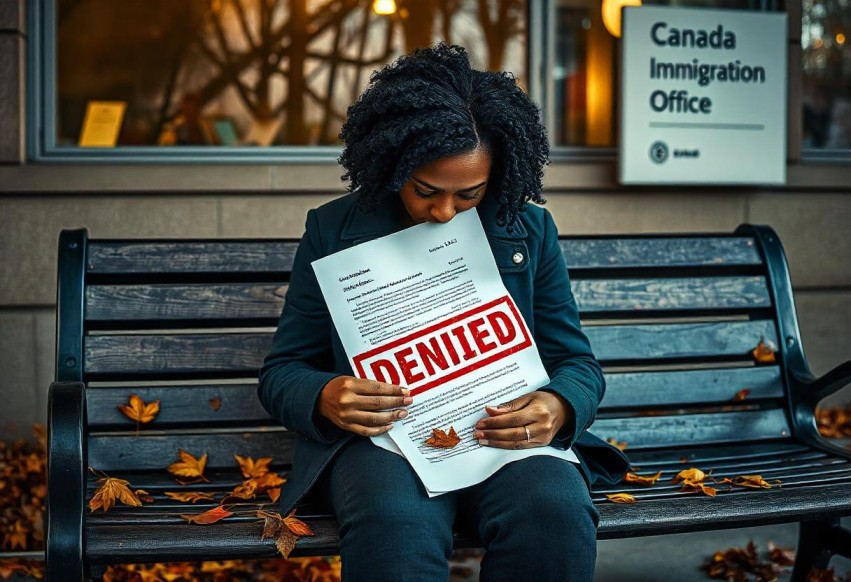Did you know that even a minor legal issue, like a Driving Under the Influence (DUI) offence, could prevent your entry into Canada? Canada takes its border regulations seriously and understanding the factors that lead to criminal inadmissibility is crucial. Knowing how to address potential challenges is vital for ensuring a smooth journey.
This blog explores the implications of criminal inadmissibility and the steps to overcome it.
Criminal Inadmissibility
In the Canadian legal context, Criminal inadmissibility refers to prohibiting foreign nationals, permanent residents, or individuals from entering or remaining in Canada due to their criminal history.
Temporary residents and applicants for Canadian permanent residence may be considered criminally inadmissible under several circumstances related to their criminal charges and convictions.
Following are the instances of inadmissibility:
- Individuals convicted for a severe or lesser offence under Canadian law may be deemed inadmissible.
- Individuals charged or convicted of a crime in another country that would be classified as a crime in Canada may face inadmissibility.
- Individuals who commit acts outside Canada that are considered crimes under the laws of the jurisdiction where they occurred and violate both local and Canadian laws can be found inadmissible.
Visa Application Process
- Visa-Required Countries: Foreign nationals from countries that require a visa must complete a visa application in advance. The application is required to reveal any criminal history, as applicants are required to disclose past convictions and arrests.
- Visa-Exempt Countries: Individuals from countries that do not require a visa will be admitted at the discretion of a Canadian Border Services Agency (CBSA) officer at a Port of Entry (POE). Given that many countries share criminal conviction information for national security reasons, CBSA officers may deny entry to criminally inadmissible individuals.
Permanent Residence Applications
Police Clearance Certificates
Applicants for Canadian permanent residence must obtain police clearance certificates from every country where they have lived for six months or more. These certificates are essential requirements for immigration officers as they help assess the applicant’s criminal history.
Disclosure Requirements
All permanent resident applications require individuals to disclose any convictions, sentences, detentions, or arrests. Based on their assessment, immigration officers may request additional details.
What is Criminal rehabilitation?
Criminal rehabilitation is the process of addressing the underlying issues that contribute to criminal behaviour. It aims to help offenders reintegrate into society after serving their sentences.
In Canada, individuals who are criminally inadmissible due to past convictions can apply for criminal rehabilitation to clear their records and gain entry to the country. The process typically requires demonstrating a stable lifestyle and emphasizing the potential for personal transformation to avoid future criminal behaviour.
What are the options for overcoming criminal inadmissibility in Canada?
Individuals who are criminally inadmissible to Canada have the opportunity to overcome this barrier through criminal rehabilitation.
Individuals automatically achieve rehabilitation after 10 years if they have completed their sentence or if the offence occurred, as long as the crime would result in a maximum 10-year sentence under Canadian law. However, those with convictions or offences committed within Canada cannot resolve their inadmissibility through this process.
Instead, they must seek a record suspension from the Parole Board of Canada to address their criminal record. This distinction is crucial for anyone looking to enter Canada, as the pathways to rehabilitation differ significantly based on where the offence occurred.
What Documents Are Required to Address Criminal Inadmissibility?
The process involves completing specific forms available on the IRCC website. You must provide the following documents:
- Court documentation related to your offence (s)
- Evidence of rehabilitation
- Police clearance certificates
Since processing time for criminal rehabilitation can take up to 24 months, it is advisable to apply well ahead of any planned travel to Canada. If you have not yet completed five years since your sentence, you can address your criminal inadmissibility by applying for a Temporary Resident Permit (TRP).
Temporary Resident Permit (TRP): A Pathway to Overcome Criminal Inadmissibility
A Temporary Resident Permit (TRP) allows individuals deemed criminally inadmissible to enter Canada temporarily. If you are not yet eligible for rehabilitation, the TRP will enable you to visit Canada for specific purposes and limited timeframes, provided you meet certain requirements.
Interestingly, a TRP differs from a Temporary Resident Visa (TRV). A TRV is a travel document required for entry into Canada by most visitors, students, or workers unless they are visa-exempt.
On the other hand, a TRP is exclusively for foreign nationals who are criminally inadmissible, granting them temporary legal entry under particular circumstances.
For Canadian immigration, a visa serves as an entry document, while a permit provides legal authorization to carry out specific activities within Canada. A TRP expressly permits criminally inadmissible individuals to visit Canada for short-term stays.
How to Apply for a Temporary Resident Permit?
Applying for a TRP can become a complex and tiring process for criminally inadmissible individuals. Although there are no strict eligibility requirements, immigration officers grant TRPs only after strictly assessing applications based on individual circumstances. They often evaluate each case and check if the applicant’s need to enter Canada outweighs the potential risks to Canadian society.
To make it simple, to strengthen your TRP application, you must demonstrate:
- A compelling reason to enter or stay in Canada.
- That your presence poses minimal risk to the health and safety of Canadians
For visa-exempt applicants, applications can be submitted through the relevant Canadian visa office, which may have specific procedures.
Individuals requiring a visa must include proper documents explaining their inadmissibility and application for a Temporary Resident Visa (TRV).
The application process typically takes three to six months when submitted through a Canadian consulate. However, American citizens can apply at a port of entry for immediate processing. A non-refundable fee of approximately CAD 229.77 is required. All these will eventually lead you to address your inadmissibility and justify your request to enter the country.
Individuals with criminal histories may find the TRP process a bit more complex. To navigate these complexities, it is highly recommended that they seek the help of a proficient immigration lawyer. They can ensure that all necessary information is provided and that the application clearly articulates the need to enter Canada.
If you need more expert guidance, you may contact ImmiLaw Immigration Law Professional Corporation. Our team of immigration lawyers and legal professionals is well-versed in the intricacies of Canadian immigration law. We meticulously compile and present all necessary information, helping to articulate a compelling case to justify your entry into Canada. Applicants can significantly enhance their chances of a successful outcome with the support of experienced immigration professionals who provide tailored guidance and help present a strong case.
Contact us for a detailed and hassle-free consultation.
Read to Know: How Can You Improve Your Chances of Getting a Canadian Visa After a Rejection?


